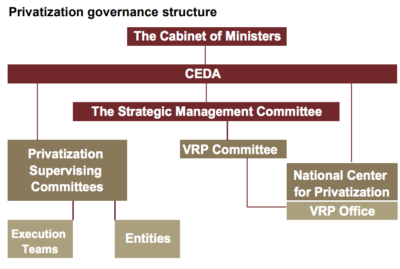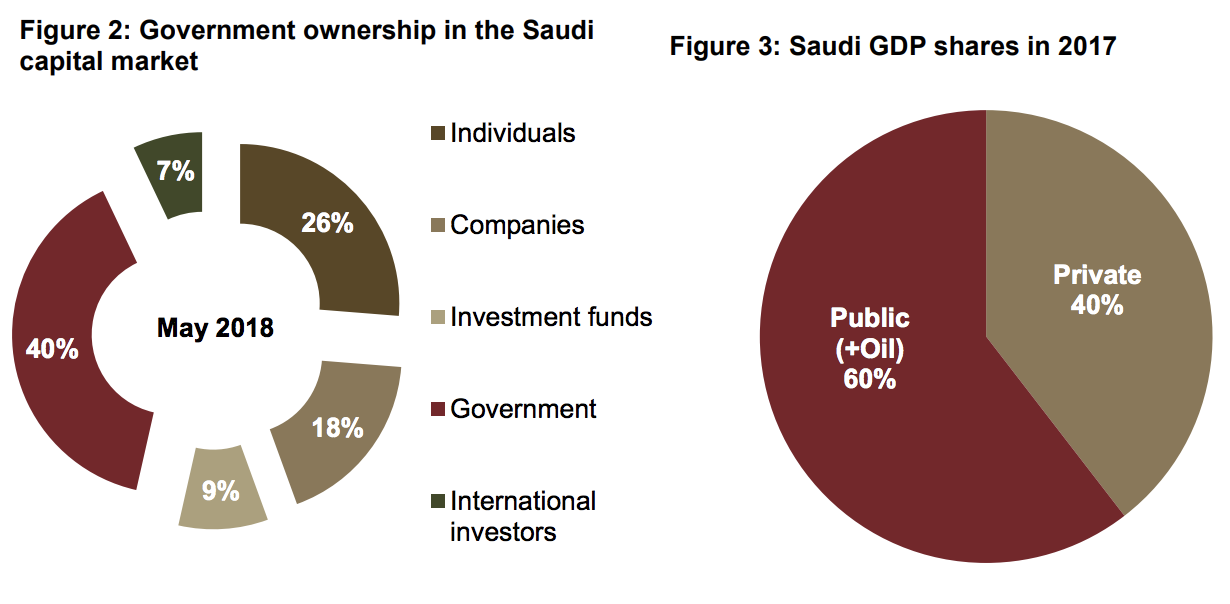A recently released Jadwa Investment report lays out in detail Saudi Arabia’s ambitious privatization plans as part of its Vision 2030 economic and social reform program and identifies opportunities and challenges for decision-makers.
The research report, entitled “Privatization and Vision 2030” which was emailed in a note to investors by Jadwa’s head of research Dr. Fahad Alturki, discusses the government’s aim to privatize five government assets by 2020, with total revenues to reach SR35-40 billion (roughly $10 billion). More than 100 privatization initiatives have been identified to be considered by 2020 in many sectors including health, water, transportation, education, municipalities, energy, sports, labor and social development, and communication.

Privatization governance structure for Saudi Arabia. Graphic via Jadwa Investment.
“The plan shows a high level of governance and regulatory framework, however, we find two main challenges that could be tackled by the privatization program in the medium term: the impact on level of services and the impact on employment,” Jadwa notes. “Experience shows that privatization, if well executed, can bring clear benefits to the economy in terms of economic growth, higher employment, and an improved fiscal balance for the government. In addition to fiscal benefits, privatization can lead to economic benefits, such as enhancing market competition, attracting local and foreign investments and developing capital markets. Social benefits can arise too, such as enhancing public services and involving citizens in the ownership of the economy through the distribution of shares.”
The overview of the Kingdom’s privatization plans by Jadwa Investment is a useful source to understanding how Saudi Arabia will move to privatize key assets in the next few years and avoid the pitfalls that other governments have made in the past.
The report is available here in PDF form (and here in Arabic).









